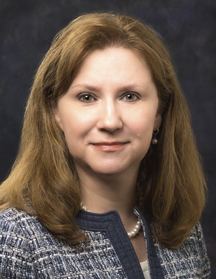Member, Steptoe & Johnson PLLC
By Alicia Willard
Melissa Settles Watkins has lived her entire life in West Virginia. With her family’s roots tracing all the way back to the earliest settlements of the Mountain State, helping her home and fellow West Virginians grow is her top priority.

As a member at Steptoe & Johnson PLLC, Watkins uses her expertise in taxation, business and commercial planning and nonprofits to provide legal guidance and build bridges for West Virginia’s charities and tax-exempt organizations. Watkins found her passion for helping others while growing up in West Milford, WV, with her parents and younger sister. Showing an early talent for assisting classmates, she thought of becoming a teacher and began coaching baton twirling in junior high.
“Helping people learn has been a desire I have always had,” she says. “Now, it has morphed into helping people or organizations with legal issues. Knowing I am making a difference in the life of a person or helping ensure the success of a community organization is the most rewarding part of what I do.”
Watkins graduated from Fairmont State University in 1989 with a bachelor’s degree in accounting, after which she joined West Virginia University (WVU) as a senior accountant. Graduating from WVU College of Law in 1999, she earned her degree while working part time as an assistant controller at the university.
After graduation, Watkins joined Steptoe & Johnson as an associate. As a member today, she works with nonprofits to help them create their organizations and navigate governance and tax-exemption issues.
“Nonprofit organizations come in all shapes and sizes,” says Watkins. “In some cases, the client can be a well-established organization that is facing a new challenge or entering a new endeavor. In other cases, the client may be a new organization with the passion and skills to tackle a substantial community issue, but they need to be set up appropriately. The goal in both cases is to get the client to the point where they can focus on their mission without worrying about administrative problems.”
In addition to establishing these organizations and obtaining their tax-exempt status from the IRS, Watkins helps them create an organizational structure that meets their needs and complies with the applicable legal requirements. In most instances, this means developing an appropriate donor gift receiving process as well as fundraising protocols.
Leading coordination of Steptoe & Johnson’s pro bono efforts and providing her own expertise for free to nonprofits in need, Watkins continues serving West Virginia outside of the office and is known for her extensive community service. She serves on the Committee on Pro Bono and Lawyer Referral Services for the Washington County Bar Association and the Joint Public Policy Committee for Philanthropy West Virginia. She has also served as secretary, board member and executive committee member for the Bioscience Association of West Virginia and on the board of directors for the Fairmont State Foundation.
“My role as pro bono director is to ensure we devote our pro bono efforts to situations that will provide a real benefit to the community,” says Watkins. “People and organizations at all economic levels can help our community but may not have the resources for quality legal services and advice. For those who cannot afford to pay, pro bono work provides an opportunity to ensure fairness.”
On top of her legal leadership roles, Watkins volunteers as legal counsel to Chestnut Mountain Ranch, The Living Room and Holy Pursuit’s Dream Foundation, Inc. She has also served on various committees at Suncrest United Methodist Church, including her current role on the Peace with Justice Committee.
For Watkins, however, volunteering with Court Appointed Special Advocates for Children, or CASA, rises to the top of her list of passions.
“Helping children and youth helps the community and also gives me a feeling of intense satisfaction,” she says. “I feel that we all have a duty to help our communities be better places to live. It helps others, but we also receive a benefit ourselves since we live in these communities.”








